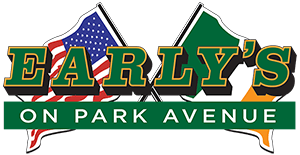How To Spot Autoshop Scams!

The auto repair industry is full of honest, hardworking professionals, but like any business, there are always a few bad apples who take advantage of unsuspecting customers. Autoshop scams can cost you hundreds—or even thousands—of dollars, not to mention the stress and frustration that come with feeling cheated. Whether you’re new to car ownership or have been driving for decades, learning the art of detecting autoshop scams is crucial for protecting your wallet and your vehicle.
In this guide, we’ll explore the red flags, deceptive tactics, and proven strategies you can use when figuring out how to uncover autoshop scams. We’ll also explain how to avoid autoshop scams altogether so you can drive away with peace of mind.
Understanding the Psychology Behind Autoshop Scams
Before we dive into specifics, it’s important to understand why autoshop scams happen in the first place. Most mechanics genuinely want to fix your car and earn your trust. But dishonest shops prey on customers’ lack of technical knowledge.
Cars are complex machines, and unless you’ve spent years under the hood, it’s easy to feel overwhelmed when a mechanic starts listing parts and repairs you’ve never heard of. Scammers exploit this knowledge gap to upsell unnecessary services, inflate prices, or even invent problems that don’t exist.
Some scams are designed to create urgency. A mechanic might warn you that your brake system is on the verge of catastrophic failure, hoping the fear of an accident will push you into approving expensive repairs immediately. Others work on the principle of confusion—burying you in jargon so you simply nod along, unsure of what’s legitimate and what’s a con.
By recognizing these psychological tactics, you’ll be better equipped to approach any repair conversation with a healthy dose of skepticism and confidence.
Common Signs When Detecting Autoshop Scams
When it comes to detecting autoshop scams, the key is knowing what patterns to look for. While every scammer’s style is different, many share common warning signs that should immediately raise your guard.
One red flag is the “phantom problem.” You bring your car in for a routine oil change, and suddenly, you’re told your transmission is failing, your alternator needs replacing, and your suspension is shot. While it’s possible multiple issues exist, the odds of so many unrelated major problems appearing at once are slim.
Another sign is vague or evasive explanations. A trustworthy mechanic will show you the damaged part, explain how it affects your car’s performance, and answer your questions clearly. Scammers tend to gloss over details, offer inconsistent answers, or push back when you ask for clarification.
You should also be wary of inflated labor charges. Dishonest shops may bill you for more hours than the job actually takes, banking on the fact that most customers won’t know the standard time required for specific repairs. If you’re quoted 10 hours for a job that industry guidelines say should take three, something’s off.
Finally, be alert to high-pressure sales tactics. If a mechanic insists you must authorize repairs immediately or face dire consequences, step back. A reputable shop will give you space to think, research, and get a second opinion.
How to Uncover Autoshop Scams Before They Cost You
Learning how to uncover autoshop scams is as much about preparation as it is about real-time observation. Before taking your car in for service, do your homework. Check reviews for the shop online, paying attention not just to ratings but also to patterns in customer complaints. If multiple people mention feeling pressured into unnecessary repairs, take it seriously.
When you arrive, make note of how the staff interacts with you. Are they respectful and willing to explain their recommendations in plain language, or do they seem rushed and dismissive? Ask for a written estimate before authorizing any work—legitimate businesses expect this request and will happily comply.
If you’re told a part is failing, ask to see it. Physically examining the issue can give you a better sense of whether the problem is real. You can also request that the old part be returned to you after the repair, which discourages unscrupulous shops from replacing something that was never actually broken.
Cross-check pricing with multiple sources. Many auto parts stores can give you a quick ballpark cost for both the part and the labor. If the shop’s quote is wildly higher without a solid explanation, that’s a red flag.
In some cases, even reputable shops can make honest mistakes. That’s why getting a second opinion is invaluable. A quick visit to another mechanic can confirm whether the first shop’s diagnosis was accurate or exaggerated.
Steps to Take to Avoid Autoshop Scams Entirely
The best way to protect yourself is to avoid autoshop scams before they have a chance to happen. Building a relationship with a reputable mechanic is one of the most effective strategies. When a shop knows you’re a long-term, loyal customer, they have a vested interest in maintaining your trust rather than risking it for a quick profit.
Ask friends, family, or coworkers for recommendations. Word-of-mouth referrals can point you toward mechanics with a proven track record of honesty. Once you find a good shop, stick with it for regular maintenance so they become familiar with your vehicle’s history.
Educating yourself about your car is another powerful defense. You don’t have to become an expert, but learning basic terms, maintenance schedules, and how to check essential fluids can help you avoid being misled. There are countless free resources—videos, forums, and even short community college classes—that can boost your confidence.
Keep records of all repairs and services. If a mechanic claims a certain part is worn out but you just replaced it six months ago, you’ll have the paperwork to prove it. Detailed records also make it harder for scammers to fabricate maintenance histories.
Finally, trust your instincts. If something feels wrong—whether it’s the way a mechanic talks to you, the urgency of their warnings, or the size of the bill—it’s worth stepping back and reassessing. Walking away is always an option.
The Long-Term Impact of Falling for an Autoshop Scam
Falling victim to an autoshop scam isn’t just about losing money in the moment—it can have long-lasting consequences. Financially, overpaying for unnecessary repairs or replacing perfectly good parts is an immediate hit. But there’s also the risk of damage to your vehicle if improper repairs are performed.
For example, if a shop replaces a part that wasn’t broken but installs it incorrectly, you could face new mechanical issues down the line. Worse yet, a scammer might skip a repair you genuinely needed, putting your safety at risk.
Psychologically, being scammed can erode your trust in all mechanics, making it harder to seek help when your car really does need attention. This distrust might lead to delaying necessary maintenance, which often results in bigger and more expensive problems later.
On a broader scale, every successful scam encourages dishonest behavior in the industry. When customers don’t push back, shady practices become normalized, hurting both honest mechanics and other drivers. By speaking out, reporting scams to consumer protection agencies, and sharing your experiences online, you not only protect yourself but also help others avoid falling into the same traps.
Conclusion
Autoshop scams thrive on confusion, urgency, and a lack of transparency. By learning the warning signs, understanding the tactics scammers use, and knowing how to uncover autoshop scams before agreeing to repairs, you can protect both your money and your car. The key is staying informed, asking questions, and refusing to be pressured into quick decisions.
While the vast majority of auto repair professionals are trustworthy, taking proactive steps to avoid autoshop scams ensures that you’re never caught off guard. From building a relationship with a reputable mechanic to getting second opinions and keeping detailed records, these strategies will help you navigate the repair process with confidence.
Your car is one of your most valuable assets—treat it, and yourself, with the care and diligence they deserve. In the end, the best defense against being scammed is knowledge, preparation, and the willingness to walk away when something doesn’t feel right.
Need a Towing & Auto Repair Shop in Worcester, MA?
Here at Early’s on Park Avenue Inc., we’re dedicated to getting you back on the road with reliable, fast, and friendly service. Whether you need 24-hour towing, expert auto repair, or are looking for quality vehicles for sale, we’re here to help! As a family-owned business, we take pride in treating our customers like family and delivering top-notch service every time. Don’t wait—give us a call today and let us handle all your automotive needs!
